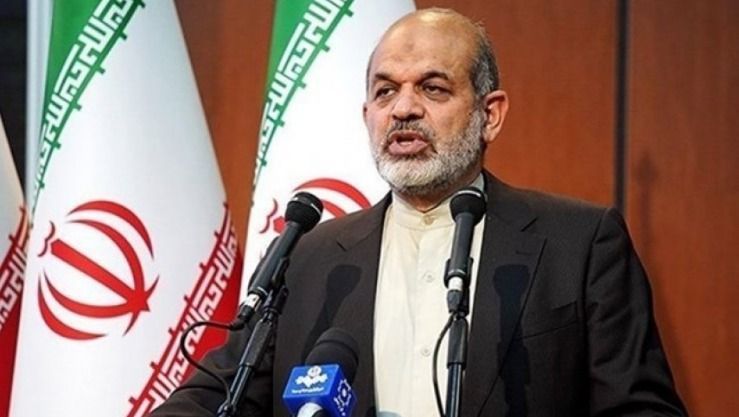Bernie Sanders at 82: A Relentless Progressive's Bid
At 82, Senator Bernie Sanders announces re-election campaign, highlighting healthcare, wages, and defending democracy as key issues.
Published May 07, 2024 - 00:05am

Image recovered from bostonglobe.com
Senator Bernie Sanders, a pivotal figure in contemporary American politics, has officially launched his re-election campaign for the U.S. Senate, embarking on what he describes as the 'most consequential election in our lifetimes'. His proclamation has ignited discussions from Vermont to Virginia, impressing upon the gravity of the nation's democratic future. Sanders, an independent who is a leading voice for progressive policies, emphasized the dire need to address vital issues such as Medicare for All, fair wages, climate change, wealth inequality, defending reproductive rights, and student debt relief.
Throughout his extensive career, Sanders has risen from Burlington mayor to a powerful Senate committee chair, asserting influence over health, education, labor, and pensions. His progressive stance has been a driving force, especially his unwavering critique on U.S. military aid to Israel amid the recent Gaza conflict, challenging the Biden administration's support.
Despite concerns over the aging political class of America, with prominent figures like President Joe Biden and Donald Trump in their late seventies and early eighties, Sanders's determination seems unphased by his age. As Sanders embarks on his campaign trail, his unbridled zeal and reputation for challenging the status quo continue to resonate with young Americans and progressives alike, signaling another influential term for the senator if re-elected, as many anticipate a straightforward victory given his lack of serious opposition thus far.
Senator Bernie Sanders, a pivotal figure in contemporary American politics, has officially launched his re-election campaign for the U.S. Senate, embarking on what he describes as the 'most consequential election in our lifetimes'. His proclamation has ignited discussions from Vermont to Virginia, impressing upon the gravity of the nation's democratic future. Sanders, an independent who is a leading voice for progressive policies, emphasized the dire need to address vital issues such as Medicare for All, fair wages, climate change, wealth inequality, defending reproductive rights, and student debt relief.
Throughout his extensive career, Sanders has risen from Burlington mayor to a powerful Senate committee chair, asserting influence over health, education, labor, and pensions. His progressive stance has been a driving force, especially his unwavering critique on U.S. military aid to Israel amid the recent Gaza conflict, challenging the Biden administration's support.
Despite concerns over the aging political class of America, with prominent figures like President Joe Biden and Donald Trump in their late seventies and early eighties, Sanders's determination seems unphased by his age. As Sanders embarks on his campaign trail, his unbridled zeal and reputation for challenging the status quo continue to resonate with young Americans and progressives alike, signaling another influential term for the senator if re-elected, as many anticipate a straightforward victory given his lack of serious opposition thus far.
Bernie Sanders has not only been a significant force in pushing for progressive change but also a seminal figure who brought socialist ideas into the mainstream American political dialogue. His call to action goes beyond traditional party lines and seeks to unite a coalition of working-class voters, environmentalists, and social justice advocates under a broader movement striving for economic and social reform.
Sanders' approach to this election campaign is as revolutionary as his policies. He relies heavily on grassroots funding, vehemently rejecting corporate PAC contributions which bolsters his claim to represent the common American rather than corporate interests. This financial independence has become a hallmark of his career and appeals to voters seeking authenticity in politics.
Additionally, Senator Sanders has put a spotlight on the power of youth in shaping the future of politics. His former presidential campaigns mobilized an unprecedented number of young voters, and he continues to inspire them through educational programs and public forums aiming to increase political awareness and participation among this critical demographic.
His advocacy for issues, such as the Green New Deal, showcases his far-sightedness on climate policy, aligning with scientists' urgent calls to address global warming and transition to renewable energy sources. As extreme weather events become more common, Sanders's climate agenda resonates with a population increasingly concerned about environmental sustainability and economic resilience.
Focusing on healthcare, Sanders has been a vocal proponent for a universal, single-payer system. He argues that healthcare is a human right and should not be tied to employment or financial status. His consistent stance on this matter appeals to many Americans who face astronomical medical bills and insurance premiums.
When considering the economic disparities in the U.S., Sanders is known for challenging the billionaire class and advocating for economic justice. He proposes initiatives such as increasing the minimum wage to a living wage, taxing extreme wealth, and investing in infrastructure to create jobs and improve the quality of life for all citizens.
Sanders's campaign is expected to continue shedding light on the influence of money in politics, championing campaign finance reform as a necessary step towards restoring the democratic process. As part of his mission, he tirelessly works to overturn Citizens United, the Supreme Court ruling that allowed unrestricted political spending by corporations and wealthy donors.
Indeed, Sanders's impact extends beyond the domestic sphere, as he routinely addresses foreign policy with a call for more diplomacy and less military intervention. His voice is often solitary but firm in opposing endless wars and promoting human rights worldwide, representing a distinct stance rarely echoed with such consistency in the upper echelons of American politics.
With the election on the horizon, all eyes will be on Vermont as Sanders spearheads his campaign, encouraging a nationwide reflection on the direction of U.S. policy and the power of the electorate. Should he secure another term, the ramifications could be profound, not only for his constituents but for the broader landscape of American socio-economic policy.

:format(jpeg)/cloudfront-us-east-1.images.arcpublishing.com/elespectador/E4FBVWFOZFFKJPADSHULE3OZ5U.jpg)





